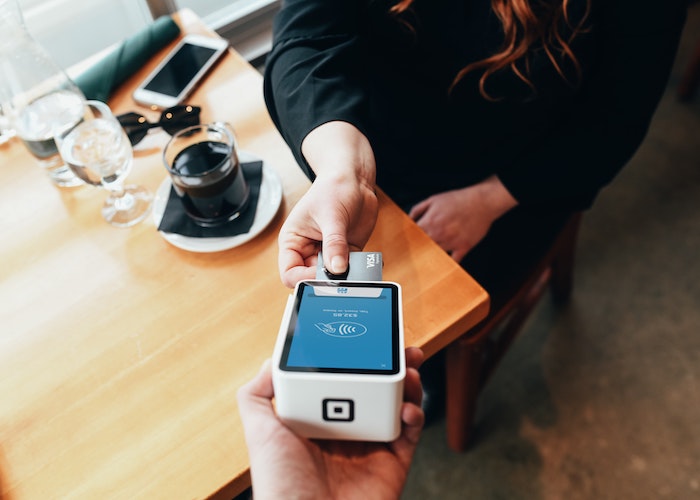An Expert’s Guide To The 9 Things You Need To Know About Credit Scores

If you’ve been reading TFD for a while now, you know how important your credit score is. Having a high score not only means you can get approved for better rewards credit cards — it also could mean the difference between landing a job or not, getting approval on a mortgage, or maybe even getting your security deposit waived when leasing a deposit.
But building up your credit score can be tough, and it takes time — and there’s a ton of misinformation out there on how to do so. Credit card expert and consumer advocate Beverly Harzog has certainly heard it all. After working as a CPA and getting herself into — and out of! — substantial credit card debt, she went on to become a finance writer and author of books like The Debt Escape Plan. I recently sat down with Harzog to talk about all the little-known things that influence your credit score, and what you can do about them.
(Disclaimer — there are tons of different credit scores out there. For the purpose of this article, Harzog is just referring to FICO’s main credit scoring system.)
1. Know the factors that influence your score.
First and foremost, you should have a solid understanding of all of the factors that go into calculating your credit score in the first place. “The five main factors are payment history, credit utilization, the length of your credit history, new credit, and mix of credit,” explains Harzog.
It’s also crucial to understand what each of those influencing categories means, and how they work together. “New credit is fine, but you don’t want to have too many [new accounts]. You lose a few points every time you apply for new credit, and it also looks like you’re desperate if you’ve got too many accounts open, and that can cause problems for you. Mix of credit — that’s important, too. Remember, all these factors come together.”
2. Your credit utilization rate can help more than you think.
Your credit utilization rate is a big factor in influencing your credit score. And most of the time, you’ll hear that you need to keep it under 30 percent (i.e. only use up to 30 percent of your available credit — if your credit card limit is $1,000, for example, you should only have a balance of up to $300 at a time). However, keeping your utilization rate even lower might be to your benefit.
“The gold standard is 30 percent. If you’ve got a great credit score, 30 percent is fine. But if you really want it at the top — the people who have scores around 800, their utilization rate is usually around 10 percent. There are times when, of course, you can’t help but have a 30 percent utilization rate, especially if you’re using rewards cards strategically. But if you are trying to raise your score, like if in a couple of months you want to apply for a mortgage, keeping your utilization rate under 10 percent will give you the best chance for a good score.”
3. Understand what a hard credit inquiry is — and how it can hurt your score.
Every time you apply for a new credit card or another credit account, your credit will undergo a hard inquiry. Harzog explains that you need to watch out for these. “You might be just on the cusp of a great score, but maybe you’ve got so many inquiries that you can’t get there…It can knock anywhere from 2-5 points off your FICO score.” Don’t open too many new accounts at once — that is sure to be a red flag to credit bureaus.
4. You can — and should — frequently check your credit score.
Unlike applying for a credit card, checking your own credit score doesn’t involve a hard credit pull. “You can check your credit score anytime you want,” Harzog explains. “And you can pull your full credit report for free once every twelve months from each bureau. You should be checking your credit report and your score, just to make sure everything looks in order. Especially with the Equifax breach, you really want to stay on top of checking things for errors.”
5. Know what to do if you’re a victim of identity theft.
Your credit report is crucial if you ever experience identity theft. As Harzog says, “If you are the victim of identity theft, you’ll have access to your credit report,” regardless of how recently you checked it. “Now, if someone opens up a new account in your name, you’re not going to see that in your credit score. You’ll only find that kind of thing in a credit report. What I do to cover my bases on that is get a free credit report from one of the bureaus every four months. I just spread them out. It’s not foolproof, but it does give you an opportunity to catch something that might be showing up on one report and not on others.”
Of course, you can’t completely prevent identity theft from happening, but you can protect yourself from letting it drastically affect you.
“If the wrong person has access to your information, something’s probably going to happen. It may not happen for another year or two, though, since those things can be unpredictable. The best thing to do is just to be proactive to protect yourself. Check your accounts online every day, or as often as possible. Just be sure that all the purchases are yours.” Also, check your credit reports as often as possible to see if there are any new accounts you didn’t open yourself. “If the issue is with a credit card, call the issuer and let them know — they can freeze the account right away. And as long as you report it promptly, most of these credit cards require 0 percent fraud liability. So if they spent $500 on stereo equipment or something, you’re not going to have to pay for that.”
6. Don’t fall for long-held myths about how to boost your credit score.
If there’s one thing people get wrong about credit, Harzog says, it’s thinking that you must carry a credit card balance at all. “People think you have to carry a balance on your credit card in order to even get a credit score or to improve it, and that just isn’t true. Your payment history is reported. If you paid on time and your balance is $0, it’s going to get recorded that you paid that. That gets people in trouble — they start carrying a balance to get a better score, and then they end up in debt.”
7. Using a credit card does help your score — but make sure it’s the right kind.
If you’re applying for your first credit card, the first thing to do is understand your credit history. “First, check that credit report. Just see what’s on there — there might be an account that you didn’t open,” Harzog explains.
The report will also tell you if you have any credit history in the first place — which can give you an idea of what kind of cards you’ll be approved for. “Let’s say you were an authorized user on your parents’ credit card, and now you’ve graduated and you’re going to open your own account. You’re going to have some credit history for that, assuming that card company reported your authorized use activity. If you’ve got even a little bit of credit, and you’ve got a job and an okay salary, you can probably qualify for a fair credit or limited credit. Capital One, Barclay’s, and Discover all have good options.”
If you don’t have a credit history (or have poor credit) and want to build up your score, one option is to apply for a secured credit card. “There are good ones, and there are terrible ones. Discover has a great secured credit card, which is usually one I recommend — no annual fee, and you can get rewards through them. If you’re associated with the military or veterans in any way, Navy Federal is the best one.”
8. Not everyone should have a credit card.
Harzog is very clear about this: if you’re not the kind of person who can use a credit card responsibly, you shouldn’t have one. “If you’ve had any problems being out shopping and can’t control what you want to spend on, maybe you shouldn’t have a credit card, and you should opt for using a set amount of cash. But for most people, once they figure out how credit works, and how to stay out of trouble, I think it works for a lot of people.”
While staying out of debt is more important than using a credit card, you can certainly learn to do both at the same time. As Harzog explains, using a credit card “can certainly help you — if you use your credit card responsibly, you can boost your credit score, which can help you buy a house at some point. And there are all kinds of reasons to have a great credit score — you pay less on insurance, for example. I also find a lot of people, myself included, start out in their twenties with a lot of problems with credit cards. But as time goes by and you learn how to be responsible, you can learn how to use credit cards.”
9. A credit card is not vital for improving your credit score.
But if there’s one thing you should take away, it’s that you don’t necessarily have to have a credit card in order to increase your credit score. “If you really feel you just can’t do credit cards,” says Harzog, “you can get a credit builder loan at a bank. Let’s say you want to take out a loan of $1,000 — they put that in an account at their bank, and then you make installment payments on it.” So if you don’t want the added pressure of a credit card bill weighing on your mind, don’t sweat it — there are other ways to boost your credit score and open doors for your future.
Holly is the Managing Editor of The Financial Diet. Follow her on Twitter here, or send her your ideas at holly@thefinancialdiet.com!
Image via Pexels




